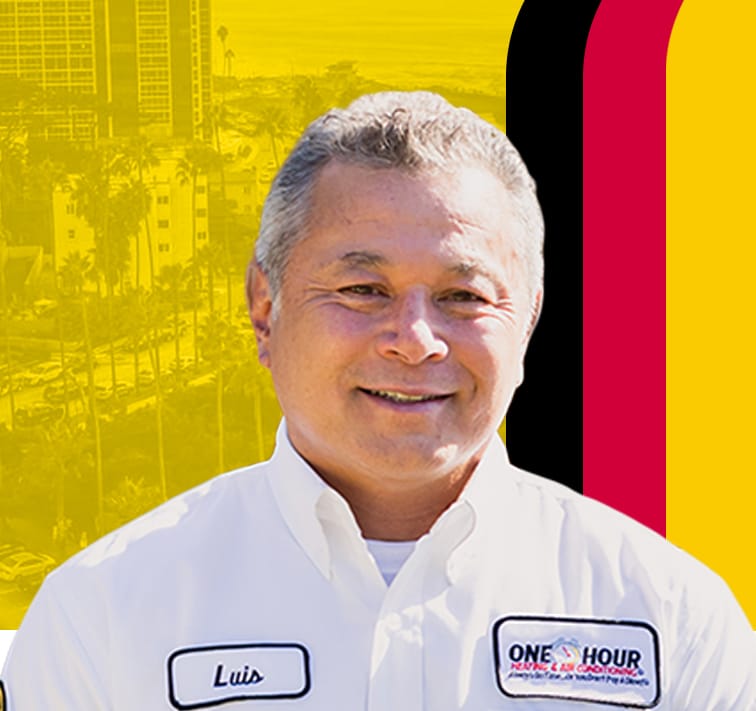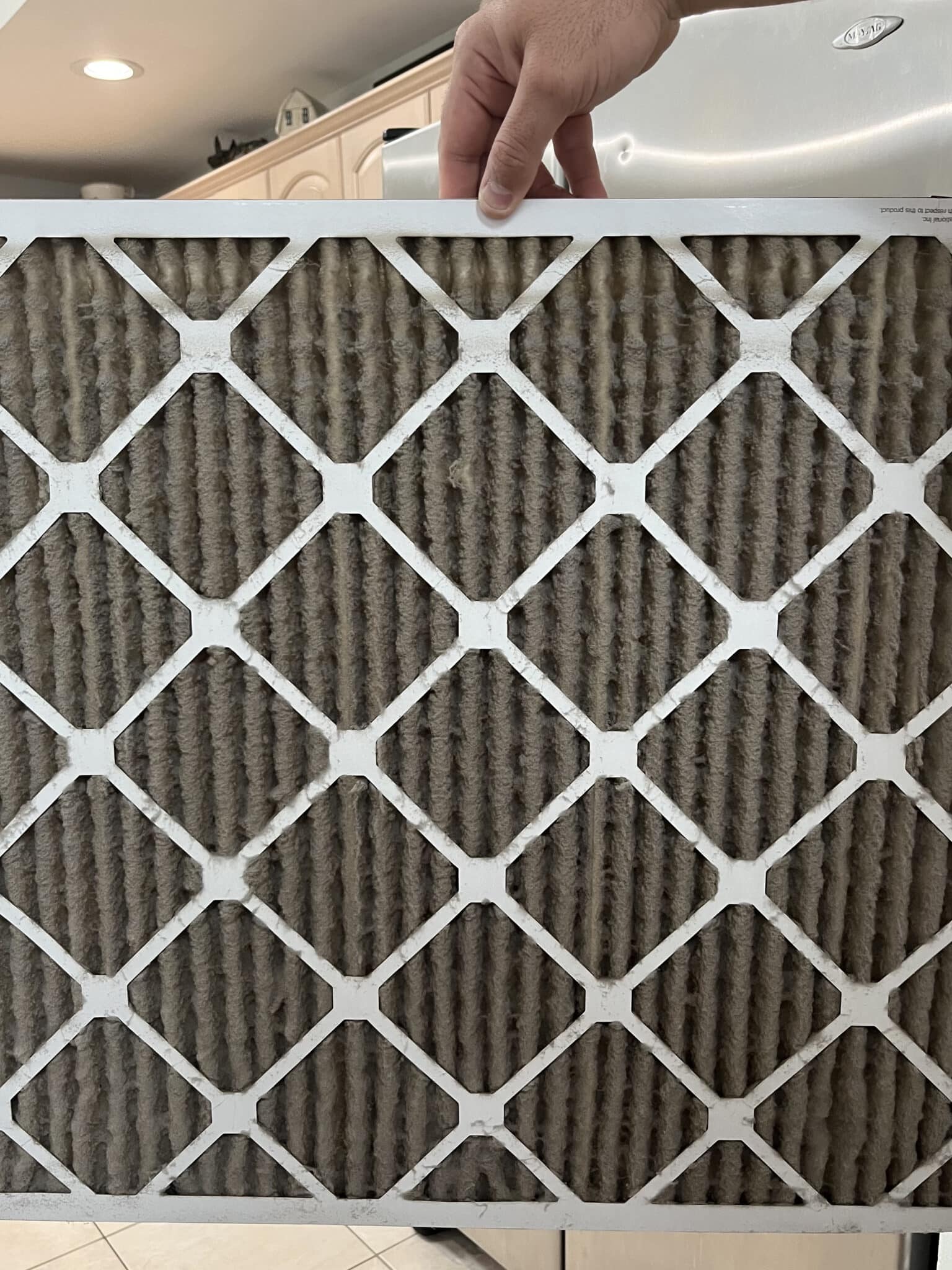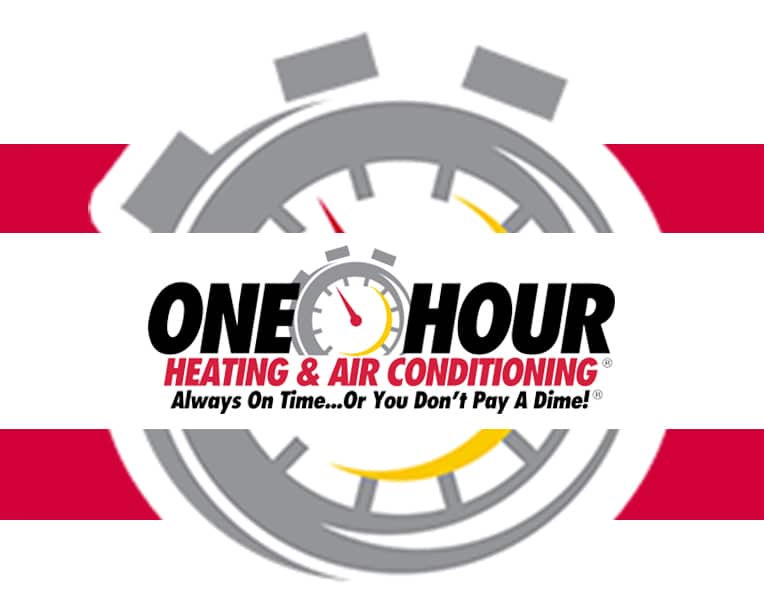Are you tired of sneezing and dealing with dusty air in your home or office? Why is choosing the right HVAC filter not just a minor detail but a crucial aspect of maintaining a healthy indoor environment?
In the world of heating, ventilation, and air conditioning (HVAC) systems, the quality and type of filter you choose are foundational, not just for routine maintenance, but for the overall efficiency of the system and the quality of air circulating within your building.
HVAC filters are essential in protecting system components and significantly enhancing the air you breathe daily.
These filters play a vital role in HVAC system efficiency by capturing dust, pollen, and other airborne particles.
This not only aids in maintaining cleaner, healthier air but also prevents these particles from entering and potentially damaging the system, thereby extending its lifespan, and boosting its performance.
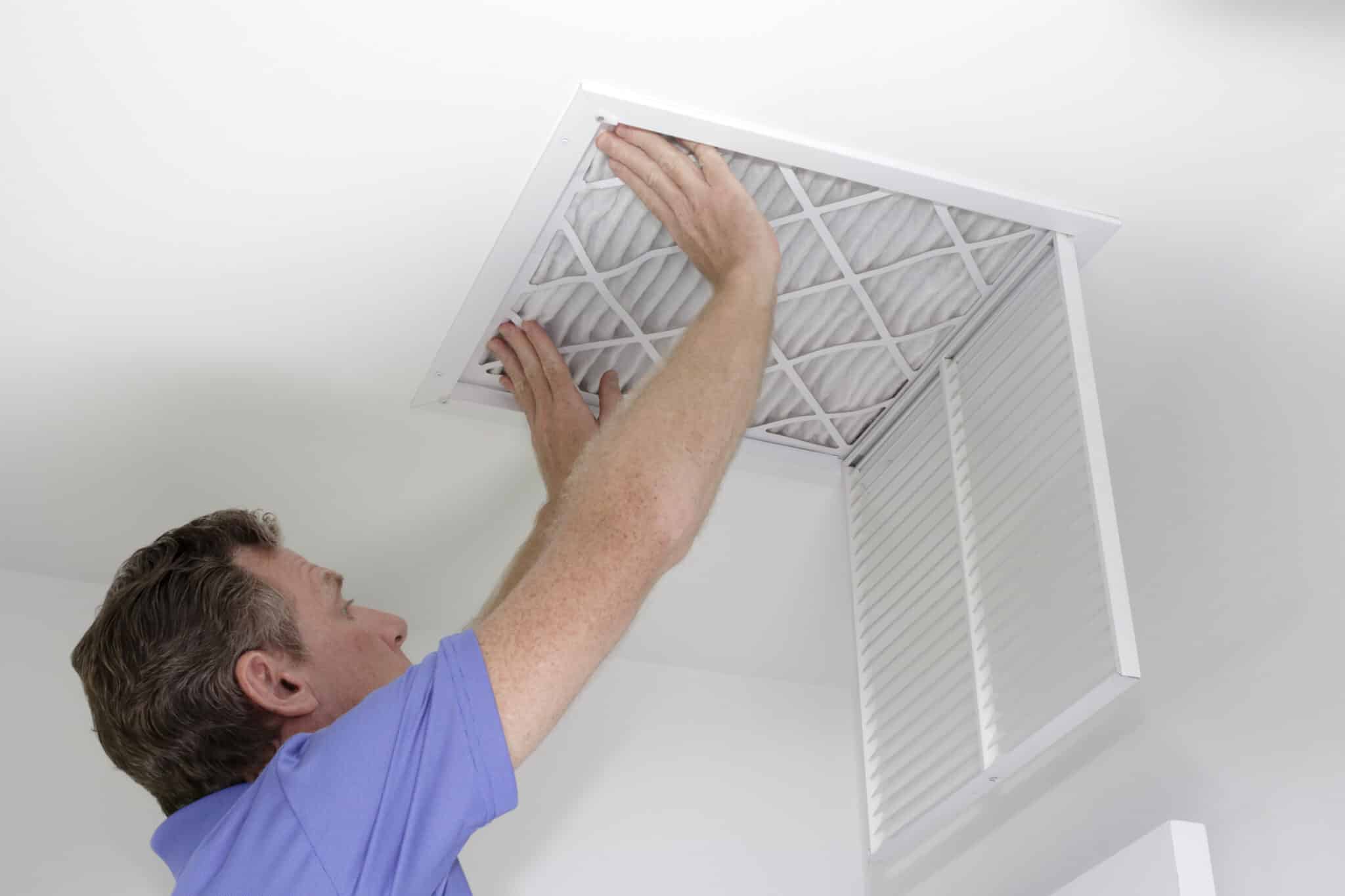
The Basics of HVAC Filters
What exactly are HVAC filters and why are they so crucial? HVAC filters are sophisticated devices designed to capture and remove airborne contaminants such as dust, pollen, pet dander, and other microscopic particles from the air as it moves through heating, ventilation, and air conditioning systems.
These filters are essential for maintaining indoor air quality and protecting the health of occupants by preventing these pollutants from circulating in the air you breathe.
Additionally, they safeguard the HVAC equipment itself by preventing debris from accumulating on the internal components, thereby extending the lifespan and efficiency of the system.
Filters are evaluated based on their efficiency, which is commonly expressed through standards such as the Minimum Efficiency Reporting Value (MERV), High-Efficiency Particulate Air (HEPA), and others. These ratings help categorize the size of particles a filter can effectively capture.
For instance, a higher MERV rating indicates a finer filtration capability, able to trap smaller particles that might otherwise contribute to respiratory issues and other health problems. Understanding these ratings is fundamental when choosing the right HVAC filter to meet your specific air quality needs.
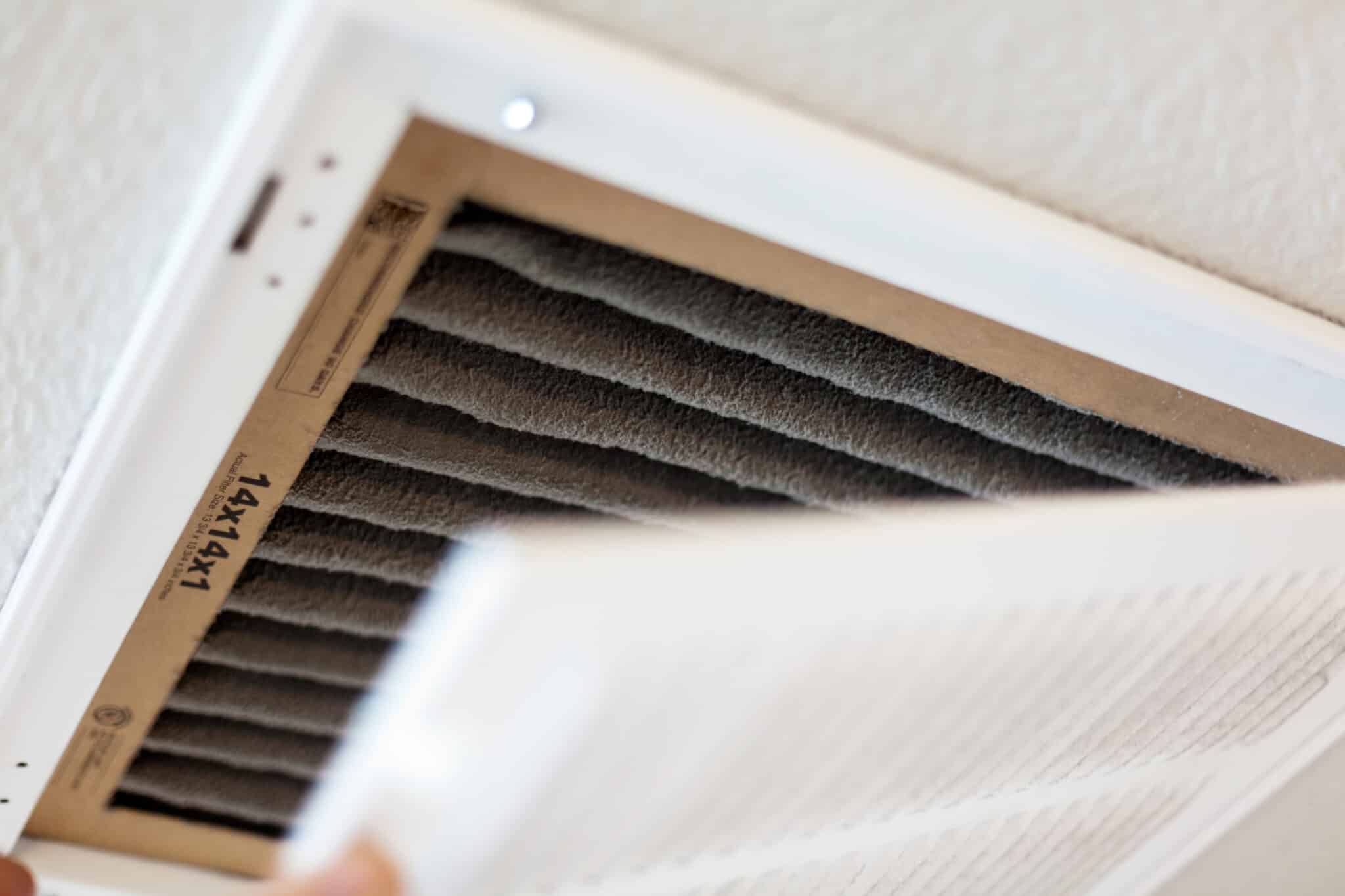
Types of HVAC Filters
Fiberglass Filters
Fiberglass filters stand as a fundamental choice in the diverse range of HVAC filter options available. These filters are ingeniously simple, primarily constructed from a loosely spun matrix of fiberglass fibers. Their basic structure allows them to perform the essential role of trapping large airborne particles such as dust, lint, hair, and other visible debris, which are typical in both residential and commercial environments.
Pros of Fiberglass HVAC Filters:
Cost-effectiveness: Fiberglass filters are notably affordable, making them an economical choice for many homeowners and businesses. Their low cost also facilitates regular replacement, which is crucial for maintaining air quality without a significant financial burden.
Ease of disposal: As disposable filters, fiberglass filters offer a convenient advantage—they can be easily and quickly replaced without the need for cleaning. This feature significantly reduces the time and effort spent on maintenance, appealing to those seeking straightforward, effective solutions for their HVAC systems.
Cons of Fiberglass HVAC Filters:
Limited filtration capability: While effective at capturing larger particles, fiberglass filters do not perform well against smaller contaminants such as pollen, mold spores, and pet dander. This limitation can be particularly challenging for individuals with allergies or respiratory conditions, as these filters do not significantly improve indoor air quality concerning smaller allergens.
Frequent replacement needs: The simplicity of their design means that fiberglass HVAC filters tend to clog more quickly than more robust options. This necessitates more frequent replacements to prevent a decrease in HVAC system efficiency and to maintain optimal airflow within the system. Constant replacement not only increases ongoing costs but also demands more attentive maintenance scheduling.
Pleated Filters
Pleated filters represent a significant advancement in HVAC system filtration, utilizing a design that incorporates multiple folds typically made from synthetic materials such as polyester or specially treated cotton. This intricate structure not only increases the surface area available for capturing particles but also enhances the filter’s overall efficacy in trapping a wide array of particulates, including mold spores, pet dander, and dust mite debris.
Pros of Pleated HVAC Filters:
Improved Air Quality: The expanded surface area provided by the pleats in these filters allows for a higher particle capture rate, which contributes significantly to better indoor air quality. This is particularly beneficial in settings where maintaining a clean and healthy air environment is crucial, such as in homes with allergy sufferers or in healthcare facilities.
Versatility: Pleated filters are highly versatile and can be effectively used in a variety of settings, from residential homes to commercial offices and even industrial spaces. Their ability to perform under different environmental conditions makes them a popular choice for diverse applications, providing dependable air quality improvements across a broad spectrum of uses.
Cons of Pleated HVAC Filters:
Higher Initial Cost: Although pleated filters offer superior performance compared to simpler filter types like fiberglass, they also come with a higher initial price tag. This cost factor can be a significant consideration for budget-conscious consumers or those managing large facilities where multiple filters are needed.
Increased Airflow Resistance: The denser material and compact design of pleated filters can lead to increased resistance to airflow. This restriction can cause the HVAC system to expend more energy in circulating air throughout the space. Over time, this can lead to higher energy consumption, which not only impacts utility costs but may also strain the HVAC system components, potentially reducing the system’s overall lifespan.
Electrostatic Filters
Electrostatic filters utilize an electric charge to enhance particle capture. As air passes through these filters, the electrostatic charge attracts and holds onto pollutants, ranging from tobacco smoke to fine dust particles.
Pros of Electrostatic HVAC Filters:
High Efficiency: Electrostatic filters are renowned for their ability to filter out an extensive array of airborne particles, including those that are exceptionally small in size. This high efficiency makes them particularly valuable in settings where air purity is crucial, such as homes with allergy sufferers, hospitals, or environments with high particulate pollution.
Reusable Options: Many electrostatic filters are designed to be washable and reusable, offering a cost-effective and environmentally friendly alternative to disposable filters. These reusable models can be cleaned and used multiple times, helping to reduce waste and ongoing costs associated with HVAC maintenance.
Cons of Electrostatic HVAC Filters:
Maintenance Requirement: Although reusable, washable electrostatic filters require regular cleaning to maintain their effectiveness. This cleaning process, which often involves rinsing the filters under running water and allowing them to dry completely, can be inconvenient and time-consuming for some users.
Variable Performance: The performance of electrostatic filters can vary over time, particularly if they are not maintained properly. If the filters are not cleaned regularly or are allowed to become severely clogged, their ability to trap pollutants decreases, which can compromise the overall air quality and efficiency of the HVAC system.
HEPA Filters
HEPA (High-Efficiency Particulate Air) filters are often considered the apex of filtration technology due to their exceptional ability to trap 99.97% of airborne particles as small as 0.3 microns. This high level of performance is critical in environments where air purity is paramount, such as medical facilities, high-tech industries, and homes where residents require superior air quality due to health concerns.
Pros of HEPA HVAC Filters:
Superior Filtration: HEPA filters offer the most comprehensive air purification capability available on the market. This makes them especially beneficial for individuals with severe allergies, asthma, or other respiratory conditions, as they can significantly reduce the presence of irritants and allergens in the air.
Effective in Various Settings: The versatility of HEPA filters extends beyond healthcare and high-tech applications. They are also widely utilized in residential and commercial settings that demand stringent control over air quality. This includes homes, offices, labs, and manufacturing facilities where maintaining a clean, contaminant-free environment is essential for health, safety, or product quality.
Cons of HEPA HVAC Filters:
Higher Cost: The advanced technology and materials used in HEPA filters typically make them more expensive than other types of filters. This higher initial investment can be a consideration for budget-conscious consumers or facilities needing to outfit numerous systems.
Increased Energy Consumption: Due to their dense filter media, HEPA filters can restrict airflow more than less intensive filters. This can lead to higher energy consumption as HVAC systems need to work harder to push air through the filter, potentially increasing operational costs and impacting the lifespan of the system.
Carbon Filters
Carbon filters are highly specialized air filters designed for removing gases and odors through a process called adsorption. These filters are packed with activated carbon, a porous material with a vast surface area that binds and traps chemical vapors and odors effectively. Their ability to purify air from gases makes them essential in environments where odor control is crucial.
Pros of Carbon HVAC Filters:
Odor and Gas Removal: Carbon filters excel at capturing airborne chemical vapors and odors, making them indispensable in settings that require meticulous control of air quality. This capability is particularly beneficial in areas such as kitchens, where cooking odors prevail, or in industrial settings where chemical vapors are a concern.
Versatile Applications: The utility of carbon filters extends across various environments, enhancing air quality in both residential and commercial spaces. They are commonly used in homes, offices, and industrial areas where the reduction of odors and gasses is necessary for health, comfort, or environmental standards.
Cons of Carbon HVAC Filters:
Limited Particulate Filtration: While carbon filters are unmatched in their ability to absorb gasses and odors, they fall short in trapping particulate matter. This limitation means they are often paired with other types of HVAC filters, such as HEPA filters, to achieve a comprehensive air purification solution.
Saturation Point: Like a sponge, carbon filters can only absorb so much before reaching a saturation point. Once saturated, their effectiveness diminishes, necessitating replacement. The lifespan of a carbon filter varies based on the volume of contaminants in the environment and the specific conditions of use.
Choosing the Right Filter for Your HVAC System
Selecting the right HVAC filter is not just about improving air quality; it is also about enhancing the efficiency and longevity of your HVAC system. Here is how to make the best choice tailored to your needs:
Understand Your System’s Requirements
Every HVAC system is designed with certain filter requirements that must be met to maintain optimal performance. These requirements typically include specific sizes, types, and designs. Using an incompatible filter can lead to a host of problems, such as reduced efficiency, higher operating costs, and even potential damage to the system itself.
It is crucial to consult the manufacturer’s recommendations to ensure compatibility with your system. A filter that is too restrictive may overburden the blower motor, leading to premature wear and possible breakdowns. Conversely, a filter that is too porous may not effectively capture contaminants, which could degrade indoor air quality and increase the burden on your system, causing it to work harder to maintain the desired climate.
Consider Your Air Quality Needs
Indoor air quality significantly impacts health, comfort, and productivity, making the selection of the right HVAC filters crucial, especially for those with allergies, asthma, or other respiratory issues. Choosing HVAC filters with higher Minimum Efficiency Reporting Value (MERV) ratings can greatly benefit households where air quality is a concern. These filters are designed to be more efficient at capturing smaller particles, thereby helping to alleviate symptoms associated with poor air quality and enhancing overall well-being.
MERV 1-4: These filters are effective at capturing large particles such as pollen, dust mites, and similar allergens commonly found in residential settings. They provide basic air filtration and are generally suitable for homes without severe allergy concerns, offering a simple and cost-effective solution for everyday air quality improvement.
MERV 5-8: Ideal for both residential and commercial environments, these HVAC filters can trap smaller particles such as mold spores and pet dander. They strike a balance between efficiency and airflow, making them a popular choice for maintaining healthier indoor air in standard living and working conditions.
MERV 9-12: These filters are particularly beneficial for individuals with respiratory conditions, as they are capable of trapping finer particles like auto emissions and lead dust. Their advanced filtration capabilities help ensure that more harmful contaminants are removed from the air, thus providing a significant improvement in air quality for those requiring a cleaner environment to manage health issues.
MERV 13-16: These high-efficiency HVAC filters are suitable for high-quality residential applications or even hospital-grade needs. They excel at capturing bacteria, tobacco smoke, and other microscopic particulates that can be detrimental to health. Their superior performance makes them ideal for environments where air purity is critical, such as healthcare facilities and homes with immunocompromised individuals.
When selecting HVAC filters, it is important to consider the specific needs of your environment and the health requirements of all occupants. Higher MERV ratings mean better filtration capabilities, but they can also restrict airflow more than lower-rated filters, potentially affecting the efficiency of your HVAC system. It is crucial to find a balance that maintains your system’s efficiency while improving indoor air quality to the level needed for your particular situation.
Upgrading to higher-efficiency HVAC filters may require adjustments to your HVAC system to accommodate the increased airflow resistance. Consulting with HVAC professionals can provide insights into the best types of filters for your system and how to optimize your setup for both air quality improvements and energy efficiency.
By carefully considering your air quality needs and choosing the appropriate MERV rating, you can significantly enhance the living conditions in your home or business, ensuring that the air you breathe contributes positively to your overall health and productivity.
Balance Efficiency and Cost
Choosing the right HVAC filters involves a careful balance between achieving optimal air quality and managing the energy consumption of your HVAC system. Higher-rated filters, such as those with MERV 13-16 ratings, are excellent at purifying the air by trapping smaller particulates. However, these filters also tend to restrict airflow more than lower-rated filters, which can lead to increased energy usage as your system works harder to circulate air.
This increased workload can strain your HVAC system, potentially leading to higher utility bills and a shortened lifespan for your equipment. Therefore, it is important to consider whether the benefits of higher air quality outweigh the costs associated with reduced energy efficiency. Selecting a filter that provides a good balance of air purification without significantly impacting system performance is crucial. For many homes, filters with MERV 8-12 ratings provide an effective middle ground, offering improved air quality without a substantial increase in energy consumption.
Consider the Environment and Frequency of Use
The specific environmental conditions of your home also play a critical role in selecting the appropriate HVAC filter. For example, homes located in urban areas or near construction sites are often exposed to higher levels of dust and airborne pollutants. In these cases, a higher-rated filter may be necessary to effectively remove these contaminants and maintain indoor air quality.
Conversely, in rural or less polluted areas, the air quality may naturally be higher, thus a lower-rated filter could suffice. This can help maintain energy efficiency in your HVAC system while still providing adequate air filtration.
Additionally, the frequency with which your HVAC system operates should influence your choice of filter. In homes where the HVAC system runs continuously or frequently due to extreme temperatures or other factors, investing in durable, high-performance filters is beneficial. These filters are designed to withstand heavy use without compromising on efficiency or effectiveness.
Regularly evaluating the specific needs of your environment and how often your system is in use will help ensure that you choose the most suitable HVAC filter. This not only maintains optimal air quality and system performance but also helps manage maintenance and operational costs effectively.
Installation and Maintenance Tips
Proper installation and routine maintenance of your HVAC filters are crucial steps to ensure that your system runs efficiently and effectively, providing optimal air quality and minimizing wear on your HVAC equipment. Here are detailed guidelines and tips to help you manage your HVAC filters effectively:
Installation Guidelines
- Identify the Right Filter Size: Before purchasing a new filter, it is crucial to know the exact size required for your system. An incorrectly sized filter can compromise the effectiveness of your HVAC system. A filter that is too small will not capture all the air pollutants as it allows unfiltered air to bypass the filter and circulate through your system. Conversely, a filter that is too large will not fit into the designated slot, causing similar issues with air bypassing the filter.
- Check for Directional Arrows: Most HVAC filters are designed with arrows on the frame to indicate the proper direction of airflow through the filter. It is essential to install the filter so that the arrows point toward the direction of the airflow, typically toward the furnace or air handler. Installing the filter backward can restrict airflow and reduce the efficiency of your system.
- Ensure a Snug Fit: Proper installation of the filter ensures it fits snugly within the holder with no gaps around the edges. Any gaps can allow dust and debris to enter the HVAC system, potentially causing damage and reducing overall air quality.
- Turn Off the System While Changing Filters: To prevent dust and debris from being pulled into the system during the filter change, always turn off the HVAC system before starting the filter replacement process.
Maintenance Best Practices
Regular Checks: Regular visual inspections of your HVAC filter are essential, especially during high-use seasons such as summer and winter when the system works harder. These checks can help you determine if the filter is dirty and needs to be replaced sooner than the usual schedule.
Stick to a Schedule: As a general rule, it is recommended to change your HVAC filter every 90 days. However, this schedule may need adjustment depending on specific circumstances, such as homes with pets, people with allergies, or residences in particularly dusty environments, where filters might need replacing as often as every 30 to 60 days.
Consider the Filter Type: Different types of filters have varying lifespans. For example, fiberglass filters might require more frequent changes than pleated or electrostatic filters. HEPA filters, known for their durability and efficiency, also need regular checks to ensure they are not clogging the system and restricting airflow.
Clean Reusable Filters Regularly: If your system uses a washable filter, regular cleaning is necessary to maintain its effectiveness. Follow the manufacturer’s instructions—usually cleaning every 1 to 3 months—and make sure the filter is completely dry before reinstalling to prevent mold growth.
Monitor System Performance: Keep an eye on how your HVAC system performs. Increased frequency in cycling or a noticeable decline in air quality can indicate that your filter needs changing.
Professional Maintenance: Regular professional maintenance, including annual or semi-annual inspections, ensures that your system remains clean and runs efficiently. These sessions are also an ideal time for a thorough inspection and cleaning of your air ducts to further enhance your home’s air quality.
By adhering to these detailed installation and maintenance guidelines, you can significantly extend the life of your HVAC system and ensure it operates at peak efficiency, providing a healthier indoor environment for you and your family.
Seasonal Considerations for HVAC Filters in San Diego and Surrounding Areas
The choice of HVAC filters can be significantly influenced by seasonal changes, especially in regions like San Diego, La Mesa, Spring Valley, El Cajon, and Lakeside. Each season brings different air quality challenges that can affect both the efficiency of your HVAC system and the health of your home environment. Understanding these seasonal variations can help you select the most appropriate HVAC filters to enhance indoor air quality throughout the year.
Spring:
During spring, the air is often filled with pollen from blooming plants and trees. For residents in areas like La Mesa and Lakeside, where there might be a higher density of flora, this can be particularly challenging for allergy sufferers. Using HVAC filters with higher MERV ratings (MERV 11-13) during this time can help capture these fine pollen particles before they circulate through your home, providing relief from seasonal allergies.
Summer:
San Diego and its surrounding areas, including El Cajon and Spring Valley, experience dry and sometimes dusty conditions in the summer. The use of air conditioning systems is at its peak during these hot months, pulling in more outdoor air and potentially more pollutants. Upgrading to filters that can capture finer dust particles (MERV 8-10) will help maintain clean indoor air and protect your HVAC system from the influx of dust and particulate matter that can clog system components.
Fall:
Fall can bring cooler temperatures and, in some areas, the beginning of the heating season. This change can stir up dust accumulated within air ducts and other parts of the HVAC system that have been idle. A comprehensive HVAC inspection is recommended during early fall to check for debris and mold that may have developed. Using a high-efficiency filter (MERV 11-13) can be beneficial to ensure that any accumulated particles do not circulate back into the home environment.
Winter:
In colder parts of the San Diego region, like some higher elevation areas around Lakeside, heating systems are used more frequently. Winter air can also be dry, which exacerbates issues like dry skin and respiratory irritation. During these months, maintaining humidity levels is just as important as filtration. Using HVAC filters that maintain airflow while trapping heating dust and other particles (MERV 8-10) will help manage air quality without overly restricting airflow, which can be a concern with higher-rated filters when heating systems are running frequently.
By adjusting your HVAC filter type and maintenance practices according to the season, you can significantly improve the comfort and health of your indoor environment while optimizing the performance of your HVAC system. This proactive approach is especially important in areas with variable climate conditions such as San Diego and its neighboring communities.
DIY vs. Professional HVAC Maintenance
Maintaining your HVAC system is crucial for ensuring its efficiency and longevity. While many aspects of HVAC maintenance can be managed by homeowners, certain tasks should be left to professionals. Understanding when you can safely handle maintenance yourself and when to enlist professional help can save you both time and money, while also ensuring your system operates optimally.
When DIY is Appropriate:
Changing HVAC Filters: This is one of the simplest maintenance tasks that most homeowners can undertake on their own. Regularly changing the air filters is vital for maintaining air quality and ensuring your HVAC system operates at peak efficiency. Filters should be checked and possibly changed every 30-90 days, depending on usage and environmental factors.
Basic Cleaning: External components of the HVAC system, such as the condenser and compressor units located outside the house, can generally be cleaned by homeowners. Removing leaves, dirt, and other debris from around these units can prevent airflow blockages and system inefficiencies. Ensure the system is turned off before attempting any cleaning to avoid injuries.
When to Call Professionals:
Annual Inspections: Having a professional perform an annual inspection of your HVAC system is recommended to ensure everything is functioning correctly. These inspections often include checking refrigerant levels, examining electrical connections, and ensuring the thermostat is properly calibrated. A professional can spot issues that you might not notice, preventing small problems from becoming bigger, more expensive repairs later on.
Technical Repairs: Any issues that involve the internal mechanics of the HVAC system, such as faults in the electrical components, refrigerant leaks, or issues with the heating and cooling coils, should be addressed by qualified technicians. These tasks require specific technical knowledge and tools that most homeowners do not possess. Handling these repairs improperly can lead to significant damage and may even pose safety risks.
Installing New Systems: The installation of a new HVAC system is a complex process that involves precise calculations and knowledge of building codes and standards. Professional HVAC technicians ensure that your new system is installed correctly, meets all regulatory requirements, and is set up for optimal operation. They can also guide you in selecting the most energy-efficient system for your home.
One Hour Heating & Air Conditioning of San Diego: Your Partner in HVAC Health
In the quest for maintaining excellent indoor air quality and system efficiency, choosing the right HVAC filter is crucial. At One Hour Heating & Air Conditioning of San Diego, we understand that navigating the world of HVAC filters can be complex, especially with the diverse needs specific to regions like San Diego, La Mesa, Spring Valley, El Cajon, and Lakeside.
Our expertise in HVAC systems positions us uniquely to provide personalized advice and solutions tailored to enhance your home or office environment. We not only assist in selecting the right type of filter — be it fiberglass, pleated, electrostatic, or HEPA — but also ensure its optimal fit and performance tailored to your specific circumstances.
Why Choose One Hour Heating & Air Conditioning?
- Expert Advice: Our team of experienced professionals understands the intricacies of HVAC systems and the importance of air quality in contributing to overall health and comfort. We provide insights and recommendations on the best HVAC filter that meets your air quality needs and system specifications.
- Comprehensive Services: From routine maintenance checks and filter replacements to system diagnostics and full HVAC installations, our comprehensive range of services ensures that all your heating and cooling needs are expertly met.
- Seasonal Maintenance: We recognize that each season in San Diego and surrounding areas brings its own air quality challenges. Our seasonal maintenance services are designed to prepare your HVAC system for the specific demands of each season, ensuring it runs efficiently year-round.
- Local Experience: Our deep knowledge of the local environment and its unique challenges enables us to provide solutions that are not only effective but also environmentally conscious and energy efficient.
Ready to Enhance Your Air Quality?
Unsure about which HVAC filter best suits your system, or in need of expert HVAC services in San Diego?
Do not wait! Reach out to One Hour Heating & Air Conditioning of San Diego for expert, personalized advice tailored to your specific needs.
Our team is ready to help you improve your indoor air quality and HVAC efficiency. Call us today!
Conclusion
Selecting the appropriate HVAC filter is crucial for more than just maintaining optimal air quality; it also plays a significant role in enhancing the efficiency and extending the lifespan of your HVAC system.
Implementing a routine maintenance schedule, including regular checks and timely filter replacements, is essential.
These practices not only ensure cleaner air within your home or business but also contribute to the overall health of your HVAC system, leading to reduced repair costs and longer operational life.
Thus, careful attention to your HVAC filters can yield substantial long-term benefits.

FAQs on HVAC Filters
-
What is the best type of HVAC filter for allergy sufferers?
The optimal choice for individuals with allergies is typically a HEPA filter. HEPA HVAC filters are renowned for their ability to trap at least 99.97% of particles as small as 0.3 microns. These filters excel in capturing pollen, pet dander, dust mites, and other allergens known to trigger allergic reactions, making them highly effective for enhancing indoor air quality and providing relief to allergy sufferers.
-
How often should I change my HVAC filter?
The frequency with which you should change your HVAC filter varies depending on the type of filter, the overall air quality, and how frequently the system is used. For basic fiberglass HVAC filters, it is generally recommended to replace them every 30 days. Pleated HVAC filters should be changed every 90 days, while higher efficiency filters might follow different guidelines based on manufacturer recommendations or visible signs of dirt and clogging. Regular replacement of HVAC filters ensures optimal air quality and system efficiency.
-
Can I reuse my HVAC filters if I clean them?
Reusable HVAC filters, specifically washable electrostatic filters, can indeed be cleaned and reused. These types of HVAC filters are designed for multiple uses, allowing you to rinse them under water to remove accumulated dust and debris. It is important to ensure they are completely dry before reinstalling them to prevent mold growth. However, standard fiberglass and pleated HVAC filters are not reusable and should be disposed of and replaced once they are saturated.
-
Do more expensive HVAC filters really make a difference?
Yes, investing in more expensive HVAC filters such as HEPA or higher MERV-rated pleated filters can significantly enhance your air quality. These HVAC filters are more efficient at trapping smaller, more problematic particles that lower-cost options might miss. This is particularly beneficial in environments where air purity is essential, such as homes with allergy sufferers, areas with high levels of pollution, or specialized settings like medical facilities and high-tech labs.
-
How do I know which HVAC filter is right for my system?
To select the appropriate HVAC filter for your system, start by consulting your HVAC system’s manual for specific size and compatibility recommendations. Consider the particular needs of your household or business, including allergy concerns and the typical air quality challenges in your area. For personalized advice and optimal filter selection, it is advisable to consult with an HVAC professional. Technicians from One Hour Heating & Air Conditioning of San Diego are equipped to assess your needs and recommend the best HVAC filters to ensure both system efficiency and healthy indoor air quality.






